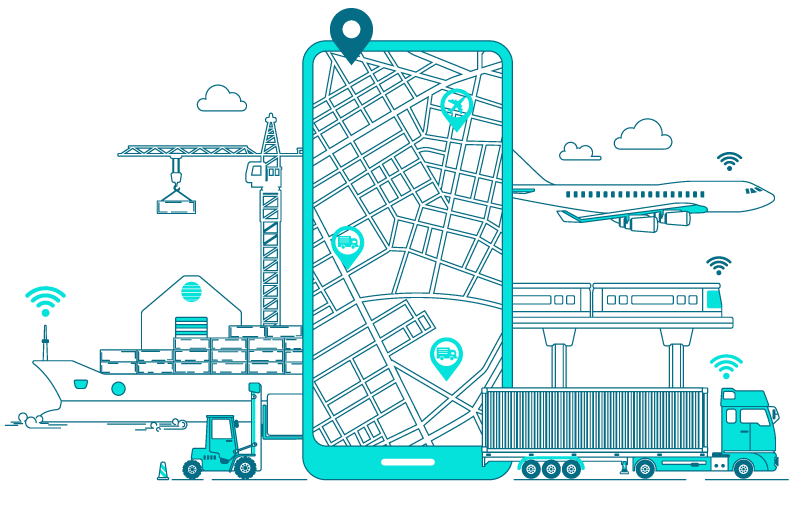Introduction

The logistics and supply chain sector in India is highly dependent on transportation costs. Whether it’s the movement of goods, raw materials, or finished products, understanding the various aspects of transportation charges is essential for businesses to effectively manage their costs.
In India, the GST rate for transportation charges is 18%. However, there is a reverse charge mechanism in place for transportation services provided by unregistered persons or non-taxable persons.
Let’s unravel the complexities and gain clarity on these aspects to optimize transportation expenses
GST and Transportation Charges
Understanding GST Rates: Goods and Services Tax (GST) is levied on transportation charges in India. The GST rate for transportation services varies based on the mode of transportation, distance, and nature of goods. It is important for businesses to be aware of the applicable GST rates and ensure compliance with the tax regulations.
Reverse Charge method
With the reverse charge method, the service recipient is now responsible for paying GST on transportation costs instead of the service provider. This mechanism is applicable when the service provider is an unregistered individual or an entity that falls under the composition scheme. Businesses should understand their responsibilities under the reverse charge mechanism to avoid compliance issues.
Costs of Transportation per Kilometre
India’s transportation costs per kilometer are influenced by a number of variables, including:
Distance: When calculating the transportation costs, the distance that must be traveled between the collection and delivery locations is a crucial factor.
Mode of Transportation: Different modes of transportation, such as road, rail, air, or sea, have varying cost structures. Road transport is commonly used for short and medium-distance transportation within the country.
Nature and Volume of Goods: The type, size, weight, and fragility of the goods being transported can impact the charges. Specialized transportation requirements for hazardous materials or perishable goods may attract higher charges.
Truck Transport Cost per Kilometer in India: A Comprehensive Guide
Here is a general overview of transportation charges for different modes of transport in India:
Road Transport

LTL (Less Than Truckload) or shared transport: Charges are calculated based on the weight or volume of the cargo, distance traveled, and the type of vehicle used.
FTL (Full Truckload) or dedicated transport: Charges are usually based on a fixed rate per kilometer, depending on the type and size of the vehicle. Additional charges may apply for tolls, loading/unloading, and waiting time.
Rail Transport

Bulky freight may typically be transported over longer distances more affordably by rail. Charges are determined based on the weight, volume, and distance traveled. There are different classes of rail service available, such as parcel trains, freight trains, and container trains, each with its own pricing structure.
Air Transport

The fastest and most expensive method of moving cargo is by air. The cost of air transportation is determined by the amount and weight of the cargo as well as the distance between the airports of origin and destination. Airlines and freight forwarders provide air cargo services and have their own pricing structures.
Sea Transport

Sea transport is commonly used for international shipping. Charges for sea transport depend on factors such as the type of cargo, container size, shipping route, and freight rates. These rates are usually negotiated between shipping companies, freight forwarders, and shippers.
Transportation Charge Calculation of truck

Calculation:
Fuel Cost Calculation: Assuming fuel price = 90 INR per liter Fuel consumption per km = 4 km/liter
Fuel Cost = (90 INR/Liter) x (350 km / 4 km/Liter) Fuel Cost = 7875 INR
Toll Charges Calculation: Assuming toll charges per toll plaza = 100 INR Number of Toll Plazas = 4 (approximate)
Toll Charges = 100 INR x 4 Toll Charges = 400 INR
Driver Compensation: Assuming driver salary per day = 800 INR Travel time = 8 hours
Driver Compensation = 800 INR/day x (8 hours / 24 hours) Driver Compensation = 267 INR
Vehicle Maintenance: Assuming maintenance cost per km = 2 INR/km
Vehicle Maintenance = 2 INR/km x 350 km Vehicle Maintenance = 700 INR
Miscellaneous Expenses: Assuming additional costs = 500 INR
Miscellaneous Expenses = 500 INR
Total Truck Transportation Cost: Total Truck Transportation Cost = Fuel Cost + Toll Charges + Driver Compensation + Vehicle Maintenance + Miscellaneous Expenses Total Truck Transportation Cost = 7875 INR + 400 INR + 267 INR + 700 INR + 500 INR Total Truck Transportation Cost = 9742 INR
Service Tax on Transportation Reverse Charge
Before the implementation of GST, service tax was applicable to transportation services. Reverse charge mechanisms were also applicable under the service tax regime in some circumstances. However, since my knowledge cut-off is in September 2021, it is crucial to refer to the latest tax regulations and consult with a tax professional for up-to-date information on service tax and reverse charges on transportation.
Summary
Considering factors such as GST rates, reverse charge mechanism, cost per kilometer, and compliance requirements is crucial for accurate budgeting and cost optimization. By staying informed about the latest tax regulations, negotiating competitive rates with transportation service providers, and leveraging technology solutions, businesses can streamline their transportation processes and ensure the efficient movement of goods across the country. It is recommended to consult with tax professionals and industry experts to navigate the complexities of transportation charges and stay compliant with the evolving regulatory landscape

